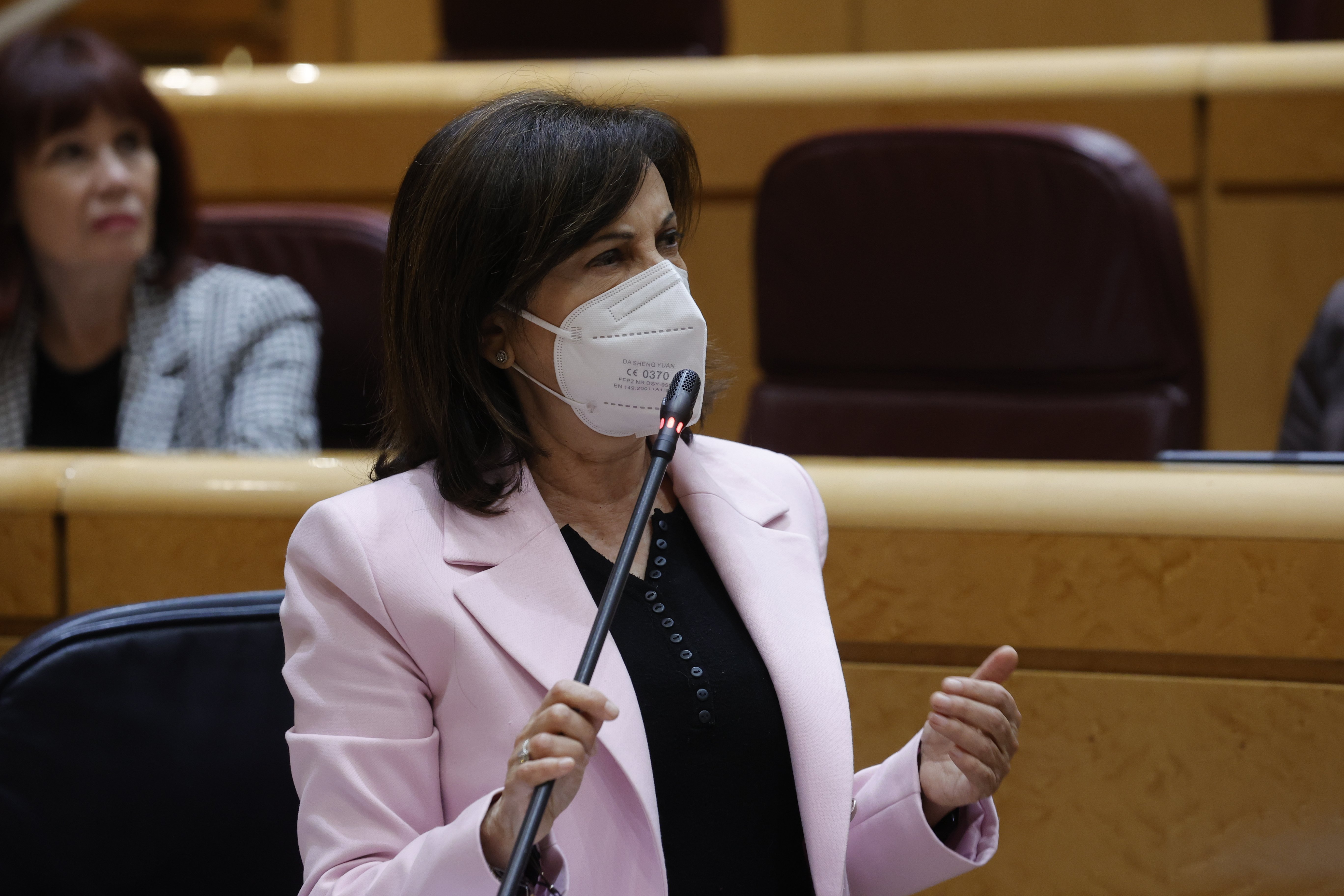Margarita Robles is the figure in the spotlight this Tuesday as the Spanish politician with direct responsibility for the state's intelligence agency, the CNI. And the Socialist defence minister not only continues to deny any link with the massive espionage against pro-independence leaders which emerged eight days ago, but has now gone on the attack. In the question time session in the Senate she had to face questions from the Catalan and Basque pro-independence parties - ERC, Junts and EH Bildu - which she accused of "going against all the basic principles of any democratic state" and making accusations "without evidence" as well as "value judgments." And she challenged them: "If you have any doubts, take them to court. With all the consequences, since false complaints are also a crime."
Margarita Robles: "For anyone who is still unsure, I'll say it again. This government only acts within the current law"
Following press reports this morning that increased the pressure on the Spanish government - with El Pais quoting sources within the CNI itself as admitting they spied on Catalan pro-independence figures, but with judicial approval, while El Español reported that Supreme Court sources had denied any such authorization - today's question time began in the Spanish senate. Junts spokesperson Josep Lluís Cleries, started the session by calling on Robles to declassify the documents on the affair, demanding a parliamentary commission of inquiry and the dismissal of all those responsible. “If you knew about this, it’s very serious, but if you didn’t know, it’s even more serious,” Cleries stated. In the same vein, ERC spokesperson Mirella Cortès accused the "state sewers" of being behind this plot and warned that the Sánchez government's response has been "totally insufficient". The ERC senator underlined that "mass espionage is synonymous with political repression." For his part, EH Bildu senator Gorka Elejabarrieta noted that "there are many questions and the answers are insufficient."
And Margarita Robles not only responded but also counterattacked. At several points during the question session, she reiterated that "we are in a state under rule of law", that "the government and all its bodies are acting in strict compliance with the law" and that "insinuations without a basis in any evidence are not valid." The defence minister pounded hard on this last argument: "The government and all its organs comply with current law. I don't know if everyone else can say the same thing." The Socialist politician described the entire case as consisting of "insinuations" and "accusations" without "any proven facts", and in this line of argument she went so far as to say that she didn't know "what The New Yorker is".
In the same style already exhibited today by fellow minister Félix Bolaños at the post cabinet meeting press conference, Robles referred to the appearance which the CNI director would make, as required by law, in the official secrets committee, behind closed doors, where he will be able to explain "everything without any [legal] limitation".

Today's plenary session of the Senate was dominated by the CatalanGate affair. And Junts took the opportunity to carry out a symbolic denunciation. At the beginning of the session, at 4pm, its senators unfurled a banner: "CatalanGate, they are surveilling us."
Sánchez looks to the PP for help
It is in this political context that the Spanish Congress will vote this Thursday on the decree to push through its urgent economic package in response to the Ukraine war crisis. Support from ERC, critical to the minority government's majority, is in jeopardy and Pedro Sánchez is already starting to look for alternatives. Today, during the control session in the Senate, the Spanish prime minister called on the main opposition group, the People's Party to support the government on the matter. PP members countered that new leader Alberto Núñez Feijóo had already presented the prime minister with a tax cut plan that has been completely ignored by the central executive.

